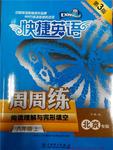题目内容
Most teenagers in the United States spend their time trying to make time for school, family and friends. But some choose bigger goals and make a difference in the world.
At age 15, Winter Vinecki has already had more _________ than most people have in their lifetime. Doctors discovered Winter’s fathers had a rare and _______ form of prostate cancer when she was nine years old. He died 10 months later. “When he was first diagnosed I immediately knew I had to do something to help him. That’s ______ I formed Team Winter for prostate cancer research and ______.” Winter Vinecki has raised almost 500,000 dollars. She has _______ prostate cancer education worldwide from Kenya to Mongolia_________ foot races called marathons, on seven continents. In the United States she travels _______ to talk about prostate cancer and _______ others to act. Winter Vinecki spoke recently at a conference in Los Angeles. “Prostate cancer is much more common, ________ the men don’t want to talk about it. So that’s why a nine-year-old girl had to go out there and start talking it for _______.”
Jack Andraka invented an inexpensive sensor that _______ cancers of the pancreas, ovaries and lungs. Jack is now 17and seeking patents for his latest inventions. He has developed low-cost water quality _______. They help identify and remove heavy metals and poisonous chemical from_____. “I hope to see them _______ in the developing nations.”
Sixteen-year-old Mary-Pat Hector saw a problem in her own community. She says too many young people were ________in gun violence. It kind of made her feel like she had to do something about it. So she started a _________ to educate young people about gun violence. “I just want the world to be a better place,” she said.
Mary-Pat hector, Jack Andraka, and Winter Vinecki say a ________ of supportive parents, the Internet and social media has helped them succeed; but Winter and Jack also created their inner ________. “Ithink the biggest thing for kids and adults is to never let age and gender be a _________ and to not just dream but dream big,” said Vinecki. “ Never let anyone else tell you ______.” Said Andraka. “Always keep going for your dream, so anything is possible.”
| 【小题1】 |
|
| 【小题2】 |
|
| 【小题3】 |
|
| 【小题4】 |
|
| 【小题5】 |
|
| 【小题6】 |
|
| 【小题7】 |
|
| 【小题8】 |
|
| 【小题9】 |
|
| 【小题10】 |
|
| 【小题11】 |
|
| 【小题12】 |
|
| 【小题13】 |
|
| 【小题14】 |
|
| 【小题15】 |
|
| 【小题16】 |
|
| 【小题17】 |
|
| 【小题18】 |
|
| 【小题19】 |
|
| 【小题20】 |
|
【小题1】C
【小题2】C
【小题3】A
【小题4】D
【小题5】A
【小题6】A
【小题7】B
【小题8】C
【小题9】D
【小题10】C
【小题11】D
【小题12】B
【小题13】B
【小题14】C
【小题15】D
【小题16】D
【小题17】A
【小题18】C
【小题19】A
【小题20】B
解析试题分析:本文介绍了三位出类拔萃、影响世界的美国青少年,告诉人们坚持梦想,一切皆有可能。
【小题1】C名词辨析。根据文章第一段(总起段落)的最后一句话可知,整篇文章讲的是出类拔萃的美国青少年,从文章第二段开始例举,Winter Vinecki 是第一个例子。所以该句句意:“15岁的Winter Vinecki比许多人终其一生所取得的‘成功’还要多。”,故正确答案为C.
【小题2】C形容词辨析。A. passive “消极的,被动的”; B. sensitive“敏感的,易怒的”; C. aggressive“侵略的;有进取心的”; D. negative“否定的,消极的”,根据该句的下一句“ He died 10 months later.”,显然她父亲的病情很严重,故选 aggressive“侵略的”,来作定语进行修饰, “a rare and aggressive form of prostate cancer ”意为:“一种罕见的侵略性的前列腺癌”。
【小题3】A名词性从句连接词的选择。根据该句句意:“也就是‘在那时’针对前列腺癌症的研究和认识我成立了Winter团队。”,即该表语从句缺表示时间状语的连接词,故选A.when.
【小题4】D名词辨析。A. development“发展”; B. threat“恐吓,威胁”; C. panic“恐慌,惊慌”; D. awareness“认识,意识”,该处for + n.表示Winter团队的价值理念所在,除了对于前列腺癌的研究,还有就是针对与对癌症的‘认识’了。
【小题5】A动词辨析。A.take有“讲授,带领”之意,其结构为“take sth/ take sb (for sth)”,例如:The head teacher usually takes us for French.校长通常给我们上法语课。B. received“收到”; C. searched“搜寻”; D. tested“测验”,该句句意:“她在世界范围内‘进行’前列腺癌的教育。”,故正确答案为A.
【小题6】A 介词辨析。A. through“通过…”; B. off“离开,偏离”; C. over“在…之上”;D. beyond“超出…”,而该句句意:“她在世界范围内进行前列腺癌的教育是‘通过’马拉松长跑的这种方式。”故正确答案为A.
【小题7】B副词辨析。A. officially“官方地,正式地”; B. continually“不断地”; C. peacefully “和平地,平静地”; D. temporarily“暂时地,临时地”,该句句意:“在美国,她‘频繁地’旅行,宣讲前列腺癌的知识,敦促(力劝)其他人行动起来。”,故正确答案为B.
【小题8】C动词辨析。A. promise“承诺”; B. pay“花费”; C. urge“力劝,敦促”; D. prefer“更喜欢”,此处句意:“‘力劝’人们行动起来。”,故正确答案为C.
【小题9】D连词辨析。A. for“因为”; B. before“在…之前”; C. unless“除非”; D. but“但是”,该句句意:“前列腺癌虽然司空见惯,‘但是’男人们都不愿谈及此事。”即两句间的逻辑关系是“转折”,故正确答案为D.
【小题10】C代词/名词辨析。根据语境和句意:“所以,这就是一个9岁女孩不得不走出去,开始给‘男人们’谈论此病的原因。”,该处用them指代上文出现的男人们,故正确答案为C.
【小题11】D动词辨析。A. cures“治愈”; B. improves“改良,提高”; C. prevents“防止,预防”; D. identifies“识别”,因为该空所在的定语从句所限定的先行词是sensor“传感器,感应器”,故定语从句的谓语动词应选D. identifies识别。该句句意:“他发明了一种廉价的能‘识别’胰腺癌、卵巢癌和肺癌的感应器。”
【小题12】B名词辨析。A. experiments“实验,试验”; B. devices“装置”;C. trials“试验”;D. data“数据,资料”,所选的名词要作动词develop的宾语,且根据下一句话所介绍的该名词的作用“help identify and remove”(帮助识别和清除…)可知,正确答案为B.
【小题13】B名词辨析。根据上文中提到的该装置为“water quality devices”水质装置,所以它的功能显然是把重金属物质和有害物质从“水中”去除掉。故正确答案为B.water.
【小题14】C动词辨析。 A. carried“携带”; B. exposed“使…暴露于/处于/面临…”; C. employed“雇佣;使用”; D.handled“拿/抓(某物);处理/管理(事情/情况)”,该处的动词要非谓语化作宾语补足语,且根据该句句意:“我希望看到它们(我的发明设备)‘被应用’到发展中国家。”故正确答案为C.employed “被使用”。
【小题15】D动词辨析。A. failing“失败”; B. fleeing “逃跑”; C. declining“减少;衰退,衰落”; D. dying“死”,根据该句的状语部分“in gun violence”(在枪击暴力中),too many young people 为主语,所以谓语应选D. (was)dying.该句句意:“她说,太多的年轻人在枪击暴力中丧生。”
【小题16】D名词辨析。A. revolution“革命,变革”; B. discussion“讨论”; C. business“生意,业务;事情”; D. campaign“活动;战役”,该句句意:“她还发起了一场教育年轻人声讨枪击暴力的‘运动’”,故正确答案为D.
【小题17】A名词辨析。A. combination“联合”; B. convenience“便利,方便”; C. competence “胜任,能力,资格”;D. consideration“考虑;体谅”,该句句意:“是能给予帮助的父母、网络和社会媒体‘共同’帮助他们取得了成功。”故该处主语应选A.
【小题18】C名词辨析。A. harmony“和谐”; B. satisfaction“满足”; C. selves“自我”; D. impressions“印象”,该句句意:“但是,Winter和Jack也创造了内在的‘自我’”,故正确答案为C.
【小题19】A名词辨析。A. barrier“障碍;栅栏”; B. favor“赞同,支持;偏爱;善行”; C. benefit“利益,好处”; D. difference“不同”,该句句意“我认为,对于孩子和成年人来说最大的事情是永远不要让年龄和性别成为‘障碍’。”,故正确答案为A.
【小题20】B名词/代词辨析。该句句意:“永远不要让别人说‘你不行’。(永远坚持你的梦想,一切皆有可能。)”,故正确答案为B.
考点:介绍人物类文章的阅读

 快捷英语周周练系列答案
快捷英语周周练系列答案 D. tone
D. tone